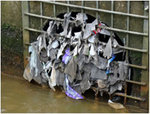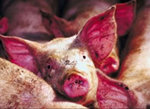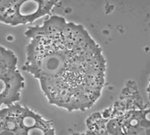University of Warwick
University of Warwick
Institution :
The University of Warwick is in the UK’s top 10 universities and ranks as the top University in the West Midlands. The School of Life Sciences has been noted for excellence in disease epidemiology and environmental microbiology two research areas combined in the current proposed work. The School is equipped with three Category III containments suites for secure research work with pathogens and has state-of-the-art molecular facilities and a proteomics suite together with a wide range of automated systems for screening cells and measuring fluorescence (FACS, confocal microscopy). A new centre for Synthetic Biology provides opportunities to develop biosensors and devices for tracking cells. Interdisciplinary centres (IC) exist in the ares of epidemiology (WIDER), environmental science (WESIC) and synthetic biology (WISB). A newly established IC has just been announced for the integrated study of antimicrobial resistance (WAMIC).
During the past decade expertise has been developed in the detection, quantification and analysis of soil microbial communities, including the identification of pathogen reservoirs outside of their hosts. The Wellington group was one of the first to report the molecular detection of antibiotic biosynthesis in soil and co-evolution of resistance in non-producers. Subsequent work indicated that waste disposal practices further disseminate antibiotic resistance gene into the environment. Studying the fate of introduced bacteria in the environment has focused on the survival of pathogens such as Salmonella species, MRSA, Dichelobacter nodosus and slow growing mycobacteria including the Mycobacterium tuberculosis complex. Recent research produced the first non-invasive methods for monitoring M. bovis shedding in wild life and cattle infected with bTB in order to elucidate the impact of control measures on disease transmission.
The environment is an important source of pathogens and as rapid changes in agricultural intensification and urbanisation occur the risks of significant biological contamination of our environment rise. It is important to be able to monitor biological hazards that the human and animal population is exposed to and, where ever possible, mitigate the risks of infection. As climates change this will become an increasingly important task and specific and sensitive high throughput methods for detecting pathogens and antibiotic resistance genes will be a vitally important part of environmental surveillance.
Role in the project:
The team at Warwick have expertise in understanding the ecology of microbial pathogens outside of their hosts, with extensive interest in survival, surrogate hosts, extraction of cells and DNA/RNA for detection, prevalence and understanding turnover. Current work focuses on the development of high throughput methods for tracking pathogens in environmental samples.
Scientific Manager and involved team:
Professor Liz Wellington is leader of the Environment theme within the School of Life Sciences and director of Warwick Environmental Systems Interdisciplinary Centre at the University of Warwick. She holds a personal chair and, with her research group, is involved in the study of bacteria in soil and survival of pathogenic bacteria in the environment. The focus is on understanding activity of bacterial communities in soil, interactions with plants and the survival, activity and interaction of human, animal and plant pathogens with indigenous soil bacteria and the respective microbiomes.
Illustration of relevant activities:

|

|

|

|